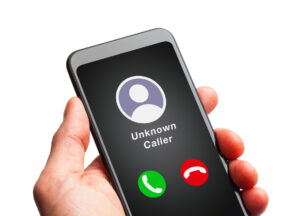October 28, 2021 | Uncategorized
Know the Signs of Elder Financial Abuse

Have you gotten an email from a Nigerian prince promising a generous reward if you helped him get his money out of the country? We all have. While those emails have become one of the most well-known examples of financial scams, the truth is financial abuse of the elderly has taken a far more sophisticated and subtle shape. The perpetrator may not be someone in a far-off land; instead, it could be someone much closer to home. Here’s what to know to protect yourself and your loved ones.
How Widespread is Elder Financial Abuse?
The American Bankers Association estimates that elder financial abuse cost victims nearly $3 billion last year. According to other organizations the amount could be as high as $36.5 billion annually. Why the discrepancy? Most of the crimes fly under the radar. In fact, just 1 in 44 cases gets reported. Some seniors don’t realize they’ve been scammed, while others are too ashamed to alert the authorities. Worse, some fear retaliation from their abuser, furthering the heartbreaking cycle of exploitation.
Who are the Perpetrators?
One of the reasons so many cases of financial abuse go undetected is because the perpetrator is someone close to the senior—perhaps a family member, friend or caretaker. In some cases, this is someone who has been entrusted to assist the senior with their finances and may hold a power of attorney. They’ll take advantage of their access to the senior’s accounts and siphon off money or make purchases for their own benefit.
Other times, the abuse begins as a seemingly innocent request. A family member asks to borrow money from the senior promising to pay it back, but they never do. The situation spirals to the point that the senior has lost so much money they no longer have enough to support themselves. Should the senior apply for Medicaid, especially if they need long-term care they no longer can afford, they’ll be in the difficult position of trying to convince the government the money was stolen and not given away, since the latter could be a disqualifying factor in the application process.
Sadly, 90% of abusers are family members or someone the senior trusts. In some cases, the abusers are the last people the senior would expect: pastors, doctors, nurses, and yes, even attorneys. This underscores the importance of staying vigilant.
What are the Signs and Risk Factors?
Some signs pop up and quickly raise suspicion, like:
-Notification of a sweepstakes win
-Contractors requesting to perform unsolicited repairs
-A friendship that develops quickly
Other signs may require investigation to uncover, especially if someone has Alzheimer’s or dementia. Look for:
-Large, frequent, or unusual withdrawals, wires, or transfers from bank accounts
-Unpaid bills or insufficient funds
-Change of mailing address on accounts or missing bank statements
-Altered legal documents, such as a will, a trust, or power of attorney the senior can’t explain
-New friends, caregivers, or nursing home staff suddenly accompanying the senior to the bank or ATM
-Money given as a loan or gift, or checks with a signature that appears forged or different
-Physical injury, threats, or evidence of withheld medical assistance or personal care, which may signal that a caregiver is using harm or neglect to coerce money from the senior
What Can You Do to Protect Yourself or Your Loved Ones?
When it comes to preventing financial abuse before it begins, diligence is the name of the game. Here’s how to stay safe:
-Invest in a good cross-cut shredder (the ribbon kind won’t cut it!) and shred all sensitive documents like credit card offers, bank statements, and anything with your personal identifying information that you no longer need to keep on file.
-For the documents you do need to keep on file, make sure they’re securely locked away.
-Similarly, lock up your check book, especially when you’ll have visitors in your home.
-Order an annual credit report and review it for any strange activity.
-Always check the references and credentials of those you plan to hire.
-Don’t pay money to release winnings or a sweepstakes prize. It’s likely a scam.
-Never rush into a financial transaction and if you have questions or suspicions (no matter how small), ask a trusted third party who isn’t involved to give it a second look.
Finally, there are legal tools that can help prevent financial abuse and protect you if you do become a target. From wills to various trusts, power of attorney, and more, an estate planning or elder law attorney can help you create a strategy that ensures your assets are only accessible to those you trust.
Preventing financial abuse takes a team. It’s one of the reasons we conduct our annual review meetings—to make sure you still have the right protection in place, year after year. When you work with AlerStallings, you can be confident that someone’s looking out for you. To ensure that you and your loved ones are protected, set up a complimentary consultation with one of our caring attorneys.


